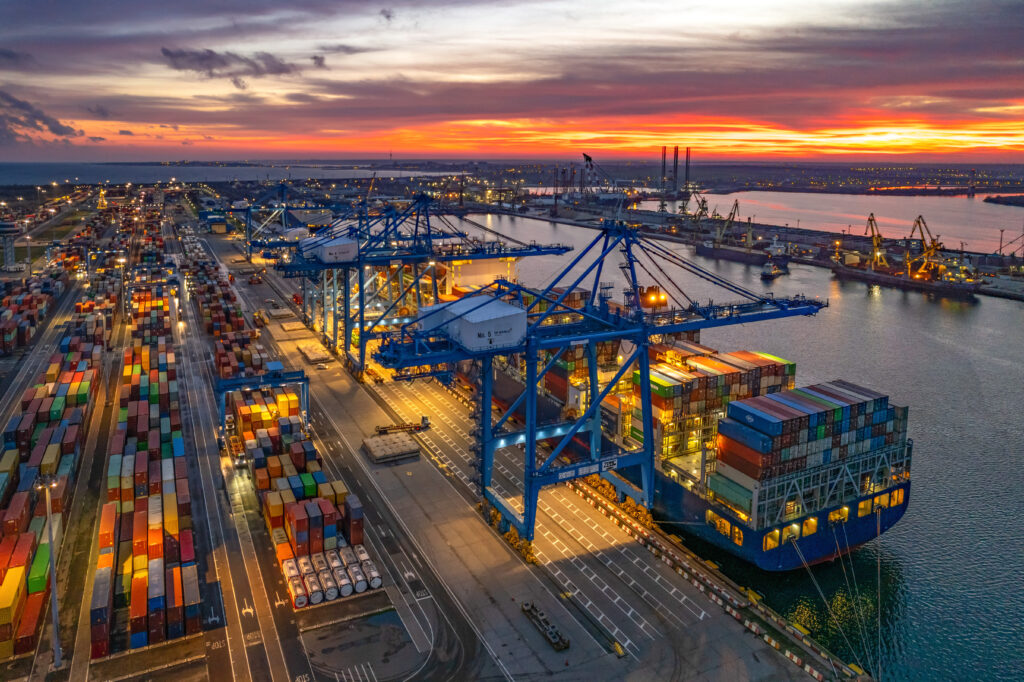Sustainability through Circularity and Real-Time Solutions
18th November 2024

The UK logistics sector is evolving rapidly in response to rising demands for sustainability and advancements in technology, writes Paul Warburton, Chief Digital and Marketing Officer of NSC. To meet these challenges, logistics companies must innovate and adopt operational models that align with regulatory standards, reduce costs, and enhance resilience. Central to this transformation are principles of the circular economy and real-time service models, which have become crucial in establishing sustainable, efficient logistics operations.
As the industry moves towards a service-based economy within a ‘Mobility Society’, logistics providers must respond to changing consumer consciousness. Today’s consumers have substantial influence over corporate behaviour, expecting the companies they support to reflect their values. For logistics businesses, this requires alignment with a wider ecosystem, where corporate ethics, sustainability, and transparency are integral.
The future of logistics will hinge on the integration of services, connected devices, and collaboration across sectors. At the heart of this transformation is a focus on the evolving customer experience. Businesses that prioritise customer needs in their technology and service strategies are more likely to sustain relevance and success.
Tackling Scope 3 Emissions with Data Transparency
A critical sustainability challenge in logistics is reducing Scope 3 emissions, which are generated indirectly throughout the supply chain. Scope 3 emissions are notoriously difficult to track due to the extensive network of suppliers and partners involved. However, they include essential factors such as emissions from purchased goods, waste disposal, and fuel consumption, all of which significantly affect a company’s overall environmental impact.
Data observability is now key to logistics operations, underpinning real-time services that enhance asset utilisation and cut waste across the supply chain. With full visibility, logistics businesses can monitor emissions, identify critical areas for improvement, and target reductions more effectively.
Data observability platforms give logistics managers insights into emissions by supplier and across each stage of the value chain, allowing them to make data-driven choices on resource allocation, vendor partnerships, and emissions reduction. This transparent approach helps companies manage their environmental impact while meeting regulatory standards and aligning with growing customer expectations for sustainability.
Reinventing Ownership Models with Circular Principles
Traditional logistics models often follow a linear ‘purchase-use-discard’ framework, generating waste and high disposal costs. A growing number of companies, however, are shifting to circular models that emphasise reusing and reallocating resources. This approach not only maximises efficiency across the supply chain but also extends asset lifespans, cuts disposal expenses, and supports waste reduction—all essential for lowering Scope 3 emissions. By incorporating circular practices, logistics companies can optimise resources, meet sustainability targets, and reduce environmental impacts.
Building a Sustainable Future for Logistics
One effective approach is to create a segmented technology roadmap, identifying objectives across three horizons: Now, Near, and Far. This approach allows companies to address immediate operational needs, anticipate future technological shifts, and prepare for long-term adaptation. By focusing on the present, planning for near-term developments, and laying foundations for future innovation, logistics businesses can enhance their resilience and competitiveness in an unpredictable technological landscape.
Immediate steps might focus on fuel efficiency, while future plans might include transitioning to electric fleets and circular infrastructure within warehouses and distribution centres. By embedding circular principles, reducing Scope 3 emissions, and harnessing real-time data, the logistics sector can create resilient, efficient, and environmentally responsible operations.
These shifts are not merely about compliance; they represent an opportunity to transform supply chains for lasting success in a market that increasingly values sustainability. Embracing these changes now will lay the foundation for a future-ready, eco-friendly logistics industry.
similar news

